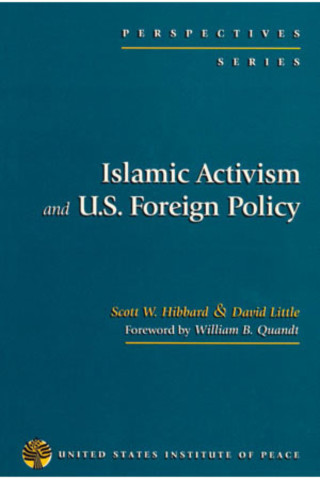Islamic Activism and U.S. Foreign Policy
For many in the West, political violence in Algeria, the Middle East, and elsewhere has come to symbolize the threat of “Islamic activism.” Terrorist attacks such as the bombing on the World Trade Towers have solidified this view. Western governments, however, must deal with the challenge of extremism in the broader context of their relations with diverse states with contrasting histories, geographies, and peoples.
To assess this challenge, the Institute brought together a distinguished group of policy analysts, practitioners, and scholars for a series of frank discussions. The sessions analyzed the nature of Islamic activism – including moderate political parties and militant extremists – and the options for policymakers to mitigate violence in a range of cases.
The main problem for the United States, participants concluded, is how to confront militant extremism while recognizing the importance of religious identity and the legitimate need in many countries for social and political reform. A foreword by William B. Quandt, Middle East expert and former National Security Council staff member, spells out how policymakers can respond most effectively to the challenge of Islamic activism.
Six countries are examined—Iran, Algeria, Jordan and the Palestinians, Pakistan, Turkey and Indonesia, and underlying each is the question ‘does Islamic activism always run counter to U.S. interests?’ . . . A useful insight into the thinking behind U.S. policy-making.
- International Affairs
Scott W. Hibbard
Scott Hibbard is Associate Professor and Chair of the College of Liberal Arts and Social Sciences at DePaul University. He teaches courses on American foreign policy, Middle East politics, and international relations. He has been at DePaul since 2005 and spent the 2009-2010 academic year teaching at the American University of Cairo as part of a Fulbright Award from the U.S. Department of State. Professor Hibbard worked in the U.S. government for twelve years—as a program officer at the United States Institute of Peace and as a legislative aide in the United States Congress. He is the author of Religious Politics and Secular States: Egypt, India, and the United States and co-author (with David Little) of Islamic Activism and U.S. Foreign Policy.
David Little
David Little, a research fellow at Georgetown University’s Berkley Center, is a leading authority on the history of religious freedom, ethics and human rights, and religion and conflict resolution. Little retired in 2009 as T.J. Dermot Dunphy Professor of the Practice in Religion, Ethnicity, and International Conflict at Harvard Divinity School and as an associate at the Weatherhead Center for International Affairs at Harvard University. Until summer 1999, he was senior scholar in religion, ethics, and human rights at the United States Institute of Peace (USIP). From 1996 to 1998, he was member of the Advisory Committee to the State Department on Religious Freedom Abroad. Little’s publications include several volumes in the USIP series on religion, nationalism, and intolerance, as well as Religion and Nationalism in Iraq: A Comparative Perspective (2007, with Donald K. Swearer), and Peacemakers in Action: Profiles of Religion in Conflict Resolution (2007). Little was also a part of the Christianity and Freedom Project headed by the Berkley Center's Religious Freedom Project.

